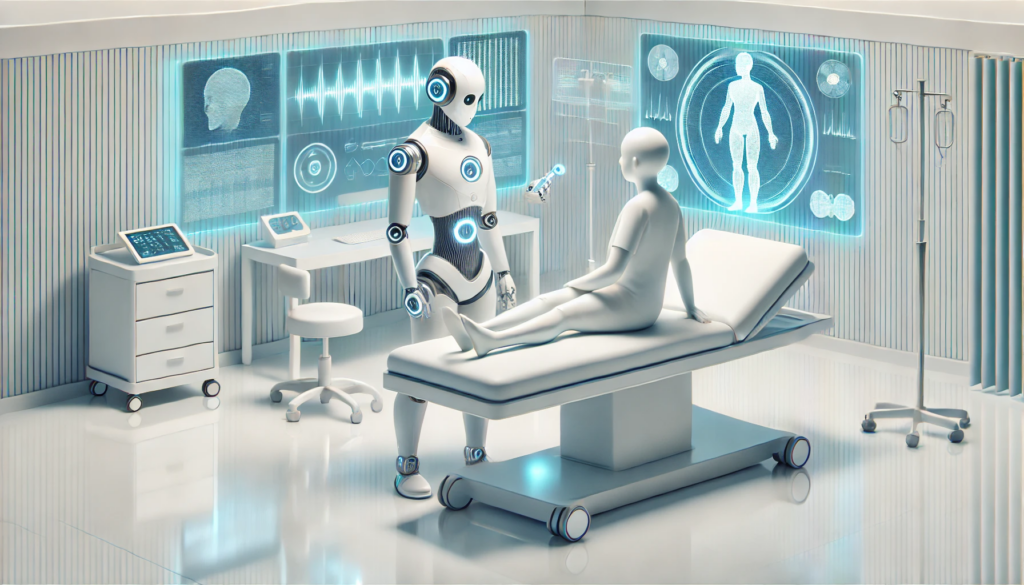In the ever-evolving field of healthcare, personalized medicine has emerged as a groundbreaking approach that tailors medical treatment to the individual characteristics of each patient. Central to this revolution is artificial intelligence (AI), which leverages advanced algorithms and computational power to transform vast amounts of medical data into actionable insights. The integration of AI in personalized medicine is not just a glimpse into the future but a reality reshaping how we diagnose, treat, and manage diseases. This blog explores how AI development is pivotal in driving the advancements of personalized medicine.
Understanding Personalized Medicine
Personalized medicine, also known as precision medicine, is a medical model that customizes healthcare, with decisions and treatments tailored to individual patients. This approach considers genetic, environmental, and lifestyle factors, making it vastly different from the traditional one-size-fits-all treatment methodology. Personalized medicine aims to improve patient outcomes, minimize adverse effects, and optimize healthcare resources by focusing on the uniqueness of each patient.
The Role of AI in Personalized Medicine
AI is a catalyst for innovation in personalized medicine, offering tools and techniques to process and analyze complex datasets that were previously unmanageable. Here are the key ways AI development is being utilized:
1. Genomic Data Analysis
One of the cornerstones of personalized medicine is genomics, the study of an individual’s genetic code. AI plays a critical role in:
- DNA Sequencing: AI-powered algorithms enable faster and more accurate DNA sequencing, significantly reducing the time and cost required to decode genetic information. Tools like DeepVariant, developed by Google, use AI to identify genetic variants with high precision.
- Identifying Genetic Markers: AI models analyze large datasets to pinpoint genetic markers associated with specific diseases, such as BRCA1 and BRCA2 for breast cancer. This identification facilitates early diagnosis and preventive measures.
- Drug-Gene Interactions: AI helps uncover how genetic variations influence drug efficacy and safety, paving the way for pharmacogenomics—the study of how genes affect a person’s response to drugs.
2. Advanced Diagnostics
AI excels at processing medical imaging, electronic health records (EHRs), and laboratory test results, enabling:
- Early Detection of Diseases: Machine learning models can analyze medical imaging to detect early signs of diseases like cancer, Alzheimer’s, and cardiovascular conditions. For instance, AI systems like Zebra Medical Vision and IBM Watson Health have demonstrated high accuracy in interpreting X-rays and MRIs.
- Personalized Risk Assessments: AI can combine genetic, lifestyle, and environmental data to generate individualized risk profiles for diseases, allowing for targeted preventive strategies.
3. Drug Discovery and Development
The traditional drug development process is time-consuming and expensive. AI accelerates this process by:
- Predicting Drug Efficacy: AI models simulate drug interactions at the molecular level, identifying promising candidates and eliminating unviable options early.
- Repurposing Existing Drugs: AI algorithms analyze vast datasets to uncover new therapeutic uses for existing drugs, as demonstrated during the rapid search for COVID-19 treatments.
- Tailored Therapies: By integrating genetic and clinical data, AI supports the development of targeted therapies, such as CAR-T cell therapy for cancer treatment.
4. Optimizing Treatment Plans
AI assists healthcare providers in devising personalized treatment plans by:
- Analyzing Multimodal Data: AI synthesizes data from various sources genomics, EHRs, imaging, and patient-reported outcomes to recommend the most effective treatment options.
- Adaptive Treatment Strategies: Machine learning models continuously learn from patient responses, enabling real-time adjustments to treatment plans for better outcomes.
- Clinical Decision Support: AI-powered tools like IBM Watson for Oncology provide oncologists with evidence-based treatment recommendations tailored to individual patients.
5. Patient Monitoring and Management
Wearable devices and remote monitoring technologies generate real-time data that AI can analyze to:
- Detect Health Anomalies: AI algorithms monitor vital signs and alert healthcare providers to potential issues before they escalate.
- Personalize Chronic Disease Management: For conditions like diabetes and hypertension, AI offers insights into patient-specific triggers and optimal management strategies.
- Enhance Patient Engagement: AI-driven apps and chatbots provide personalized health tips, reminders, and support, fostering better patient adherence to treatment plans.
Challenges and Ethical Considerations
While AI in personalized medicine holds immense promise, it also presents challenges:
- Data Privacy and Security: The use of sensitive medical and genetic data necessitates robust security measures to prevent breaches and misuse.
- Bias in AI Models: AI systems trained on biased datasets may produce inequitable outcomes, particularly for underrepresented populations.
- Integration with Existing Systems: Incorporating AI into clinical workflows requires overcoming technical and operational barriers.
- Regulatory Hurdles: Ensuring the safety and efficacy of AI-driven tools involves navigating complex regulatory landscapes.
To address these issues, stakeholders must prioritize transparency, inclusivity, and ethical considerations in AI development.
The Future of AI in Personalized Medicine
The intersection of AI and personalized medicine is still in its early stages, but the potential is enormous. Emerging trends include:
- Predictive Preventive Healthcare: AI will shift the focus from treating diseases to preventing them by predicting risks with greater accuracy.
- Integrative Omics: The integration of genomics, proteomics, metabolomics, and other “omics” data will unlock deeper insights into human health.
- AI-Powered Virtual Trials: Virtual clinical trials, supported by AI, will reduce costs and increase participation, accelerating drug development.
- Democratizing Healthcare: AI will make personalized medicine accessible to more people, including those in underserved regions, through cost-effective solutions.
Conclusion
AI development is a transformative force in personalized medicine, offering unprecedented opportunities to improve patient care, optimize treatments, and advance medical research. By harnessing the power of AI, we can create a healthcare system that is not only more efficient but also more equitable and patient-centered. However, realizing this vision requires continued innovation, collaboration, and a commitment to ethical practices. As AI and personalized medicine evolve together, they promise to usher in a new era of healthcare one where treatments are as unique as the individuals they serve.




